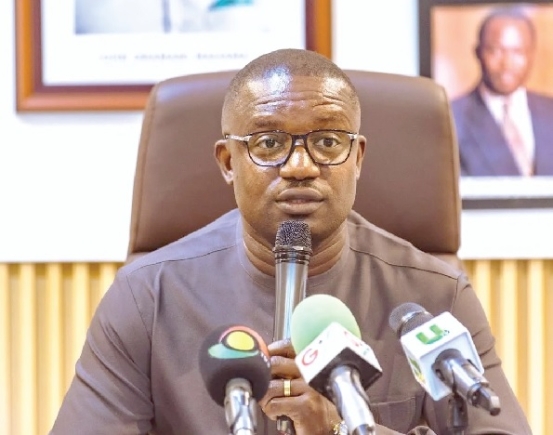Ghana’s Energy Minister, John Jinapor, has announced that the government is currently engaged in negotiations with Independent Power Producers (IPPs) to restructure payment terms, aiming to alleviate the strain of the country’s mounting energy sector debt.
The total debt stands at approximately $3.1 billion, with $1.7 billion owed specifically to IPPs. MrJinapor expressed optimism that these discussions will yield a mutually beneficial outcome for both the government and the IPPs.
Reforms
To address the challenges within the energy sector, the government has already initiated several reform measures. These include the implementation of the Distribution Network Improvement Programme, which involves proactive fault detection and rectification across Electricity Company of Ghana (ECG) feeders.
Additionally, the government has terminated 202 underperforming contracts with ECG, valued at $227 million, £1.17 million, and €4.08 million.
The introduction of the new Zeus billing system within a three-month timeframe is another key initiative aimed at enhancing revenue assurance.
Furthermore, the government is ensuring full compliance with the Cash Waterfall Mechanism (CWM) to guarantee timely payments to power producers and fuel suppliers.
Data
Recent data highlights some positive trends, such as ECG’s record revenue performance in June 2025, which reached GHS 1.678 billion. This represents a significant year-on-year increase of 47.3 per cent.
The Cabinet has also approved private sector participation (PSP) in electricity distribution through a multiple leasehold model, a move expected to bring additional expertise and investment into the sector.
Enhanced gas supply commitments from major partners like N-Gas, ENI, and the Jubilee partners are set to ensure a more reliable fuel source for power generation.
Despite these efforts, the energy sector continues to face structural inefficiencies that place considerable pressure on the national budget. Under-recoveries in the power sector are currently estimated at around two per cent of GDP, which is roughly four times the annual capital investment in infrastructure.
Fiscal space
Participants in a recent high-level discussion emphasized the urgent need for accelerated reforms to address these challenges. Resolving the sector’s issues would not only free up critical fiscal space but also unlock vital investments necessary for driving inclusive and sustainable economic transformation.
Moreover, the dialogue highlighted the importance of ensuring a just and equitable energy transition. This includes ensuring that energy remains accessible and affordable for vulnerable populations, who are often disproportionately affected by changes in energy policies and pricing.
As Ghana navigates these complex challenges, the government’s ability to implement effective reforms and manage its energy sector debt will be crucial in determining the country’s economic future.
